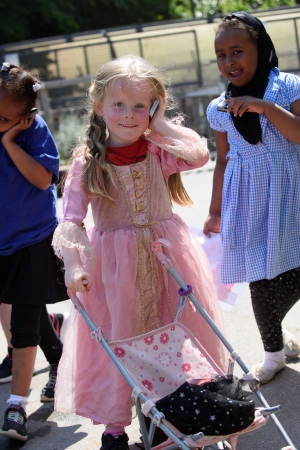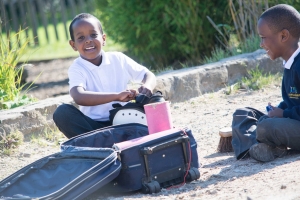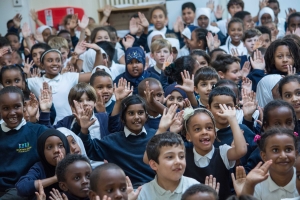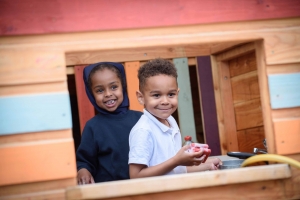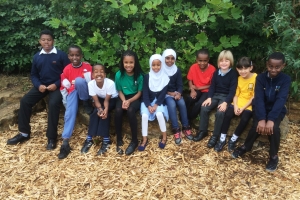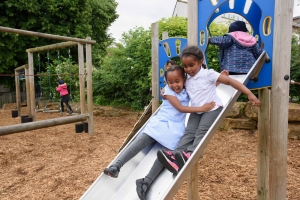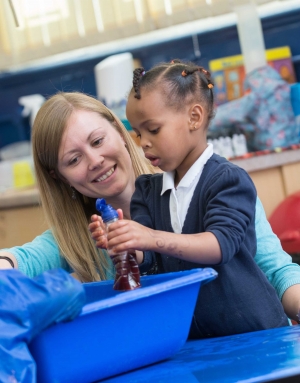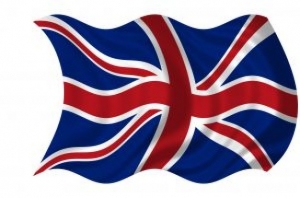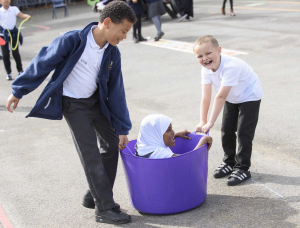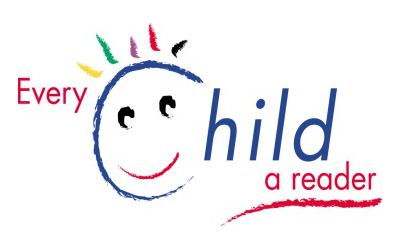
Sue Ramsay
September starters!
Play Council
Assembly Council
The Assembly councillors have an important role to play in setting up and introducing assemblies every day. They have to be confident and able to project their voices accross the hall.
Children's Voice
Children's opinions are very important to us and we listen carefully to what they think about their school and how we can improve.
School Parliament
At Hannah More we believe that everyone's views are important, and School parliament is one way that those views are shared. Our School parliament meets every week and discusses issues that affect the whole school. Each class in Year 1, 2, 3, 4, 5 and 6 is represented by a councillor whose responsibilities include collecting opinions and information, feeding back from School Council minutes, meeting, discussing and effecting change around our school with relevant adults and working on various projects. Each week the parliament members take a question back to class to be discussed.
Play Council
Safeguarding
Key Staff
Designated Senior Person for Safeguarding Children: Kevin Hawkins
Other members of the designated team for Safeguarding Children: Helen Barbour, Carrie Williams and Alan Thomson
Nominated Governor responsible for Child Protection: Gen Ellison- Smith
All staff on the designated team receive training every year. All staff in school have full training every 3 years and a short refresher each year.
If you have any safeguarding concerns, please contact the school and ask for one of thesafeguarding team.
What is Safeguarding?
Safeguarding is the action that is taken to promote the welfare of children and protect them from harm.
Safeguarding means:
• protecting children from abuse and maltreatment
• preventing harm to children’s health or development
• ensuring children grow up with the provision of safe and effective care
• taking action to enable all children and young people to have the best outcomes.
Safeguarding at Hannah More
At Hannah More, the health, safety and well-being of every child is our paramount concern. We listen to our pupils and take seriously what they tell us. Our aim is that children will enjoy their time as pupils in this school in a safe and secure environment where they are protected.
The curriculum is used to build confidence in pupils to ensure their own protection and understand the importance of protecting others.
Our school has a Child Protection Policy that follows the Local Safeguarding Children Board’s guidelines and procedures for any action which has to be taken to safeguard or promote the welfare of our children. The school has a legal duty to work with other agencies in protecting children from harm and responding to abuse.
In order to ensure children’s safety we have a number of policies outlining procedures and expectations of practice. These are:
3) Child Protection Policy, Procedures and Guidelines
5) Guide to safer working practice
Safeguarding children and child protection guidance and legislation applies to all children up to the age of 18.
What is Child Protection?
Child Protection is part of Safeguarding and promoting welfare. It refers to the activity that is undertaken to protect specfic children who are suffering, or are likely to suffer, significant harm. All staff are made aware of the Government's Guidance on Keeping Children Safe in Education. Part 1 of this document has been thoroughly read and understood by all staff.
Safeguarding and Child Protection Policy
Please click here to access our Safeguarding and Child Protection Policy.
FGM
Female Genital Mutilation is a form of child abuse and as such is dealt with under the schools Child Protection/Safeguarding policy. All parents requesting holiday leave for trips to countries where FGM is practised are reminded that it is illegal to remove a child from the UK for this purpose. You will be asked for assurance that this will not happen. It is mandatory for teachers to report to the police if they find, or are told, someone under 18 has undergone FGM. Further information on FGm is found in the following documents: Government's Multi Agency statutory guidance on FGM 2020 and Bristol Safeguarding Children's Board's Risk Assessment. Please click here to obtain more information on the correct procedure to follow when making a referral.
E-Safety
Hannah More recognises the benefits and opportunities which new technologies offer to teaching and learning. We encourage the use of technology in order to enhance skills and promote achievement. However, the accessible and global nature of the internet and variety of technologies available mean that we are also aware of potential risks and challenges associated with such use. To find out more please read our E-Safey policy by clicking here. Alternatively please click here to obtain further information and resources regarding E-Safety.
Take a look at Online Safety - Parental Awareness - some useful information for parents to help children stay safe online.
Keeping Children Safe in Education
Please click here to access the statutory guidance from the Department for Education. It is imperative that all staff (including volunteers) read this guidance and acknowledge that they have done so. Schools must have regard to the guidance when carrying out their duties to safeguard and promote the welfare of children. This document contains information on what schools should do and sets out the legal duties with which schools must comply.
The Prevent Duty
The Prevent duty is the requirement of schools to build pupils’ resilience to radicalisation by promoting fundamental British values and enabling them to challenge extremist views. Please click here to access departmental advice for schools on the Prevent Duty (DFE) Alternatively you can also refer to (Keeping Children Safe in Education) above for further information. The Designated Safeguarding Lead is trained a PREVENT trainer and delivers training to all staff. The designated team have also undertaken online training. At Hannah More we build children's resilience through our SMSC provision and indicated in this government publication. Further information about the school's approach to the Prevent duty is found in Appendix E of the Child Protection Policy.
Referrals to Children's Social Care or Early Help (First Response)
If anyone has a concern about a child's safety or wellbeing they should make a referral to First Response. Within school there would first be a discussion with a member of the designated team. We aim to work with families when we have concerns and rarely make a referral without first discussing the need for help with the parents. On occasions though this is necessary and whilst we recognise this can be upsetting for families, it is always our judgement about what is best for the child that will drive our actions.
Procedure for dealing with allegations of abuse against staff/headteacher
The procedure is outlined in the school's Safeguarding and Child Protection policy. The policy (in line with statutory guidance from the DFE) is designed to ensure that all staff, students and parents or carers are aware of the procedure for the investigation of allegations of abuse in order that all complaints are dealt with consistently, and as efficiently as possible.
Further Resources
- Keeping Bristol Safe Partnership
- All Statutory Guidance for Schools from the Government
- Safeguarding Children (NSPCC)
- Safeguarding children in whom illness is fabricated or induced
- National Action Plan to tackle child abuse linked to faith or belief
- National Information Centre on Children of Offenders
- Children Missing Education 2024
- Searching, Screening and Confiscation 2018
British Values
At Hannah More, we believe in the fundamental British values of democracy, the rule of law, individual liberty, as well as mutual respect and tolerance for those of different faiths, beliefs and way of life. These values are promoted in a variety of ways.
Democracy: Making Decisions Together
- Staff encourage children to know that their views count. Representatives from each class share the children’s views at the School parliament and children are encouraged to value each other’s views.
- Children experience democracy in action in our classrooms, for example voting on issues relevant to classroom life.
- Children are encouraged to talk about their feelings using our Zones of Regulation boards. Language for talking about and managing feelings is taught through our PSHE curriculum, ‘Skills for life’.
Rule of Law: Understanding Rules Matter
- Children understand their own and others’ behaviour and its consequences, through explicit teaching, for example during Anti-Bullying Week, and through the School Behaviour Policy and its application. Role play and social stories are used to help children understand the consequences of their choices in our PSHE ‘Skills for life’ lessons.
- Children learn to distinguish right from wrong. Ethical issues are discussed in circle times, through some Topics, for example the Year 5 Topic ‘Fairtrade’, and through visits from the ‘Life Bus’.
- Staff collaborate with children to create a Class Charter and class rules.
Individual Liberty: Freedom for All
- Children develop a positive sense of self through taking risks in play, and developing their confidence and self-esteem through team building activities.
- Children are given a range of experiences that develop their sense of shared responsibility, for example through raising money for Sports Relief and Children in Need.
- By focussing on important individuals from the past in Black History Week, they are given the chance to reflect on the importance of freedom for everyone.
- They reflect on their differences and understand we are free to have different opinions. The ability to express opinions respectfully is developed through the teaching of Philosophy.
Mutual Respect and Tolerance: Treat Others as You Want to be Treated
- There is an ethos of inclusivity where views, faiths, cultures, races and family-types are valued, and children are engaged with the wider community. This is promoted through our School Values ‘Openness’ and ‘Respect’.
- Children acquire tolerance and appreciation of their own and other cultures through a varied RE Curriculum involving the study of a variety of world religions, and through the celebration of varied religious and cultural celebrations, such as Diwali, Eid, Chinese New Year, Easter and Christmas.
- Children are taught about similarities and differences between themselves and others through termly Topics, such as the Year 2 Topic ‘Namaste London’ about India, where children visit a Hindu Temple, and the Year 4 Topic, ‘Africa’.
- Children are taught about the importance of tolerant behaviours such as sharing and respecting each other’s’ opinions through explicit modelling and encouragement by staff.
- Diverse attitudes are promoted and stereotypes are challenged through our PSHE ‘Skills for life’ lessons, for example through sharing stories which reflect and value the diversity of children’s experiences.
Play
“Playing is integral to children’s enjoyment of their lives, their health and their development. Children and young people – disabled and non-disabled – whatever their age, culture, ethnicity or social and economic background, need and want to play, indoors and out, in whatever way they can. Through playing, children are creating their own culture, developing their abilities, exploring their creativity and learning about themselves, other people and the world around them. Children need and want to stretch and challenge themselves when they play. Play provision and play space that is stimulating and exciting allows children to encounter and learn about risk. This helps them to build confidence, learn skills and develop resilience at their own pace.” Play England “Charter for Children’s Play” 2015
New STIKINS name labels
Free samples of STIKINS name labels were sent home today! If you would like to order more labels please use the following link: www.name-labels.com/schools-linking-information.php
If you use our school code 8906 when ordering then school gets 25% comission for each order. So you can help us and keep track of your child's belongings!

